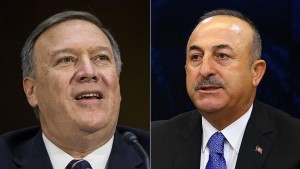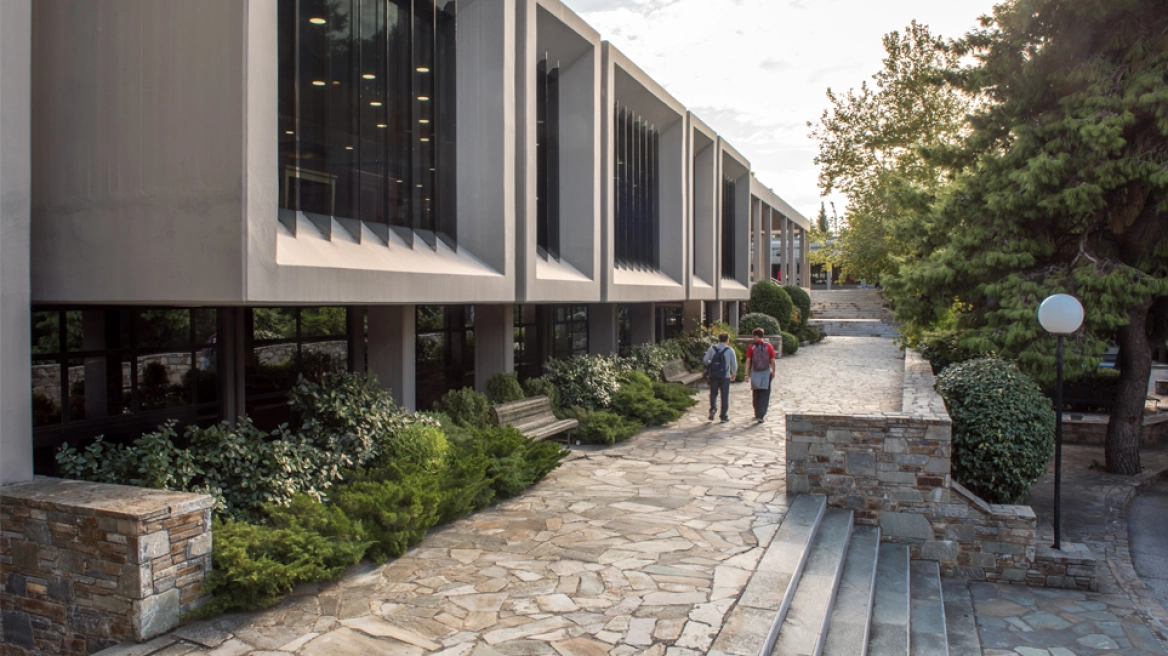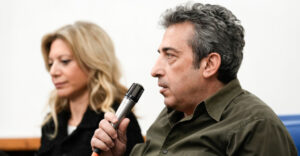Turkish Foreign Minister Mevlut Cavusoglu met with Mike Pompeo, his US counterpart, in Brussels last week on the sidelines of a NATO ministerial gathering in the hope of opening a new and more positive chapter in Turkish-US ties.
There was little to suggest, however, that Cavusoglu’s first contact with the new secretary of state resulted in major breakthroughs with regard to the many problems besetting Turkish-American ties.
To the contrary, the readout of the meeting from the US side, and the remarks by Cavusoglu after the meeting, showed that differences remain, even if they are being contained as a result of backstage diplomacy.
Former Secretary of State Rex Tillerson’s visit to Ankara in mid-February kept tensions between Turkey and the United States from boiling over. Tillerson’s visit came at a time when the two “strategic partners” appeared to be heading toward a military standoff over Kurdish People’s Protection Units (YPG) fighters in Syria.
Ankara’s threats to go after US-supported YPG fighters in the city of Manbij could not be brushed off by Washington after Turkey launched its Operation Olive Branch in January against the YPG in the northern Syrian city of Afrin.
Ankara considers the YPG a terrorist organization that poses an existential threat to Turkey. It has indicated that it will do what is necessary to prevent this group, and its political wing, the Democratic Union Party, from establishing a presence along Turkey’s border with Syria.
It was Ankara’s apparent determination that prompted Tillerson to visit Turkey with a view to reducing tensions and preventing the situation from spinning out of control. Washington also distanced itself from Turkey’s operation in Afrin, saying it had no forces in that city and, therefore, no interests there.
During Tillerson’s visit, a “results-oriented mechanism” was established between Ankara and Washington to discuss the YPG and other problems that have been clouding ties, and seek mutually acceptable solutions.
Ankara’s hopes were momentarily dashed, however, after President Donald Trump unexpectedly nominated the hawkish Pompeo to replace the more circumspect Tillerson.
Turkish officials immediately remembered that Pompeo once characterized Turkey as a “totalitarian Islamic dictatorship” in a tweet, which he later removed.
Whoever becomes secretary of state, they would have to first learn how to respect Turkey, Cavusoglu said in March in his response to Pompeo’s nomination.
Nevertheless, Ankara remains hopeful that an arrangement over Manbij can be arrived at. US officials, in turn, have noted Turkey’s support for the recent US-led strikes against regime targets in Syria as a positive development, diplomats in Ankara indicate.
Talking to reporters in Brussels after his meeting with Pompeo last week, Cavusoglu said that if the United States complied with “the preliminary agreement on a road map” arrived at between Ankara and Washington, then the YPG would evacuate Manbij.
“Otherwise, Turkey would intervene itself against terrorists,” Cavusoglu warned, revealing that doubts about US intentions linger on the Turkish side.
Turkish government officials said Turkey has proposed joint patrols with the United States in Manbij after the YPG is forced to leave the city. However, the State Department’s readout of the Pompeo-Cavusoglu talks did not provide any indication that an agreement on any joint action had been arrived at yet.
“Building upon prior discussions on Manbij, the two reaffirmed their support for the established bilateral process to find a common way forward,” the State Department readout said.
Meeting with reporters in the Pentagon earlier this week, Secretary of Defense Jim Mattis told the semi-official Anatolia News Agency that differences with Turkey over this topic remained. He added that discussions were continuing, but refused to say anything regarding their progress.
Unlike Afrin, US forces are deployed in Manbij, as well as regions east of the Euphrates held by the YPG, and senior US military officials have said they would defend their forces and their allies against any attack.
Despite the hard talk from Ankara, and the hawkish position of some in the Pentagon against Turkey, there are retired Turkish diplomats who believe Turkey and the United States will arrive at some compromise over Manbij.
Faruk Logoglu, who was Turkey’s ambassador in Washington from 2001 to 2005, said the commemorative message to Armenians that Trump issued on April 24 “shows that Washington’s brakes as far as Turkey is concerned are still working.”
Trump did not term the killing of Ottoman Armenians in 1915 as “genocide,” a characterization that Turkey rejects. There was speculation that he would use the “G” word this time, given the anger in Washington against Turkey.
“As far as Manbij is concerned, I think a middle ground will be found,” Logoglu told Al-Monitor. He said there were signs that the model worked out by Ankara and Washington would also be extended east of the Euphrates to areas currently held by the YPG with US support.
As to Pompeo’s characterization of Turkey as a “totalitarian Islamic dictatorship,” Logoglu said the newly confirmed secretary of state probably retains this belief today.
“But his current position places great responsibilities on his shoulders. This will ensure that he acts according to America’s broader interests, and not his personal opinions,” Logoglu said.
US support for the YPG, however, is only one of the topics — albeit the most urgent one for Ankara presently — that have been undermining Turkish-American ties.
Other topics include the United States’ refusal to comply with Turkey’s demand to extradite Fethullah Gulen, the Islamic preacher accused of masterminding the attempted coup against President Recep Tayyip Erdogan in July 2016.
Turkey, in turn, is refusing US demands for the release of American pastor Andrew Brunson, who has been in a Turkish prison since December 2016 and is being tried for allegedly supporting not just Gulen but also Kurdish terrorists.
The arrest of Turkish members of the US consular staff in Turkey on similar charges is also a topic Washington remains sensitive about.
“Secretary Pompeo conveyed the administration’s concern for US citizens and Mission Turkey local staff detained in Turkey,” Washington’s readout of the Pompeo-Cavusoglu meeting said.
Reporting from Washington, Cansu Camlibel of Hurriyet Daily News pointed out that “there has been no single conversation between Trump and Erdogan where the US president did not [say] Brunson’s name.”
In an April 17 tweet, Trump referred to Brunson as “a fine gentleman and Christian leader” who “is on trial and being persecuted in Turkey for no reason.”
Trump’s angry tweet came in response to the refusal by a Turkish court to release Brunson, who will remain in prison pending a verdict in his trial.
Press reports indicate that another sensitive issue discussed by Cavusoglu and Pompeo, but not mentioned in the readout, was Washington’s serious concern over Turkey’s decision to buy Russian made S-400 anti-ballistic missile systems.
The Brunson case has prompted three US senators to present a bill that would prevent the transfer of F-35 fighter jets to Turkey. They said they were responding to President Erdogan’s “path of reckless governance and disregard for the rule of law.”
A senior Western diplomat talking to Al-Monitor on condition of anonymity characterized the mood among US officials and politicians toward Turkey as “ugly.”
“Some in Ankara believe that difficulties with the Americans will be overcome and that Turkey and the US will eventually realign their policies in Syria,” the diplomat said. “This shouldn’t be taken for granted,” he added.
Responding to the threat of US sanctions against Turkey, Cavusoglu told reporters in Brussels that if Washington decided to go down that path, Ankara would respond in kind.
Such remarks show that there is still much confidence to be restored in Turkish-US ties if the sides are to overcome their serious differences.
Source: al-monitor
Ask me anything
Explore related questions





